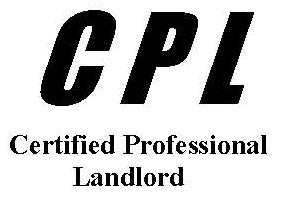So many new real estate investors buy a course or attend some seminar and are ready to rush right out and make some deals happen. Many gurus will tell you to form an entity - corporation, LLC, limited partnership, or whatever before you start up your investment business. They also provide you with "their" real estate contracts armed with 2 dozen of the latest escape/weasel clauses to help you slyly maneuver through the sale unbeknownst to an ignorant but motivated seller. Well I am not going to condemn any gurus, but I am going to try and enlighten you on what does and does not really work based on my own personal experience in the Central Florida real estate jungle.
If you have never done a real estate deal, my advice is to not worry about forming some entity to take title in. Do a couple of deals and see if real estate is for you. If it is, then consider forming an entity. In my opinion the gurus make too much of a big deal about asset protection and hiding your name from the public records. These are important things to consider if you do in fact have a big income or valuable assets to protect. If that is the case, then you should probably form an entity in order to keep those assets shielded from your real estate activities. But if you don't have much to lose consider the rest of my advice below before you spend a few hundred (or a few thousand dollars) on attorneys and CPA's to create entities, trust documents, and such. After you have done a few deals and still like real estate, then consider forming a company. Many of the REO sellers would rather deal with an individual as opposed to an entity anyway.
First and foremost, stick with the standard forms whenever possible. In Florida the FAR/BAR contract is the standard for the industry. This contract was approved and created by F.A.R. (The Florida Association of Realtors) and the Florida Bar (the lawyers). All the title companies, lawyers, lenders, appraisers, and Realtors® have already seen the FAR/BAR a zillion times and they are not going to question its terms. I like to actually tell motivated sellers that I use this standard contract, so they don't have to worry about any funny business being in the paperwork. Motivated sellers seem to be more and more skeptical of real estate investors with all the bad press that the media and the internet has given us over the last few years. Part of your job is to sell them on the idea that you are not part of the bad guy crowd. The last thing you want is to scare the seller into having their attorney review the contract and start picking it apart.
Now you might say, "What about all those escape clauses that the gurus talk about?" If you actually read through a FAR/BAR contract, you will see that many of the best escape clauses are already built into it. The contract has standard contingencies for obtaining financing, a reasonable inspection period, clear title, boundary survey, and unforeseen damage to the home between contract and closing. In fact on the FAR/BAR As-Is contract, the buyer can get out of the contract for basically any reason during the inspection period. I have actually heard an attorney state that the As-Is contract gives a buyer the right to "change their mind without consequence." If you can negotiate a long enough inspection period, you can shop the property for a cash investor, lease option tenant, or partner, have your contractor or inspector thoroughly check the place out, or do whatever you need to make yourself comfortable with the deal.
There are some creative deals that are not specifically covered by the FAR/BAR contract. Deals like lease option, subject to, and land contracts may require you to use the guru paperwork, but I would still suggest that you stick with the FAR/BAR contract and use the guru paperwork as an addendum if at all possible.
There is a good chance that the guru paperwork is more generic in nature and does not comply with Florida's many laws. Additionally the chance of a judge overturning the language in a FAR/BAR contract is remote. After all the Florida Bar approved that contract and overturning it would potentially overturn nearly every real estate deal in the State. But the guru contract could easily be thrown out or found to be unconscionable or illegal by a judge.
If you are buying an REO property, I cannot stress highly enough to actually sit down and read the entire addendum that they require as part of their package. Often times there are additional surprise fees for title, transfer taxes, and junk fees that the REO lender will try and stick you with. Some of these fees are actually illegal in Florida and the REO lenders are not even aware of it, but you will end up paying them if they are not questioned. Additionally make sure to nail down exactly how long of an inspection period you do have. Sometimes this inspection period starts on the day that the lender agreed to your deal even if they have not given you back the signed contract yet.
If you are not comfortable with reviewing the property, the paperwork, or the numbers in the deal, join a local investment club like Central Florida Realty Investors or the Investors Resource Center. There are plenty of investment club members including home inspectors, contractors, Realtors, and fellow investors that would probably be willing to help you for a reasonable fee. In Napoleon Hill's classic book Think and Grow Rich, he described the concept of a "mastermind" team to help you out in your endeavors. That is one of the big benefits of being a club member. You have people more experienced than you that you can learn from. Some will even mentor or train you if they can share some of the profits in the deal. Make sure to reach out to them and use their services. It will be time and money well spent.
It has been said that the word FEAR is just an acronym for False Evidence Appearing Real. No doubt that there is some real risk in buying real estate. You can alleviate some of your fear, by doing everything you can to minimize that risk. Even the most seasoned investors realize there is some risk in every deal you do. That is why getting a good education on investing and putting together a "mastermind" team of associates to bounce things off of is so important to your investing career.
Lastly when you are buying a house, spend the extra money and get title insurance, homeowner's insurance, and a boundary survey. Often times the seller will pay for the title insurance, so that is one less expense out of your pocket. It is a jungle out there, but there are plenty of people willing to help you out. Don't be afraid to go and seek them.







Comments(0)